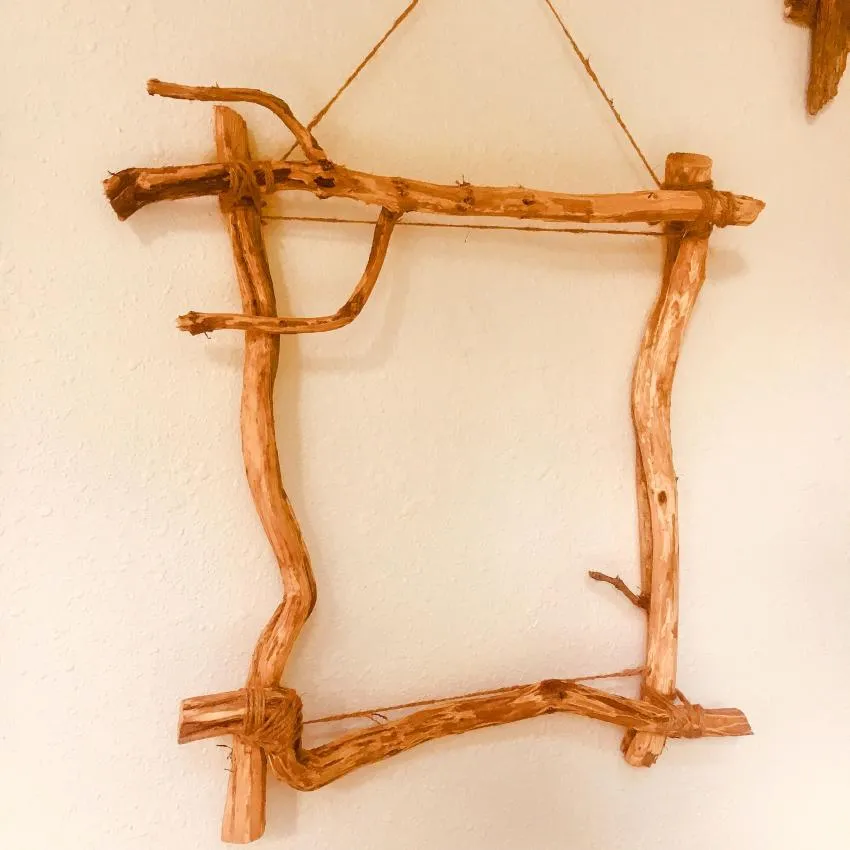Acknowledging The Good You Already Have Is The Foundation Of All Abundance

“I have come that they might have life, and have it in abundance.”
I was peering at the computer screen, waiting for my 5-year old laptop to unfreeze and complete the process. It wasn’t complying. It was taking forever. “Just be patient,” I was soothing myself in a feeble attempt to gain composure. “There’s no need to vex or fret.”
Easier said than done. Stress was slowly building up in my mind. Pushing down my irritation only made things worse. Somehow, the computer seemed to “know my mind” and slowed down even more. Finally, I gave up and reached for another device that could help me get things done in the meantime.
Five minutes into it, my mind was happily engaged elsewhere, free of all negativity about the laptop’s failure to perform. I didn’t need it anymore. When I lifted my eyes to look at it 5 minutes later, I couldn’t help but chuckle — it had successfully completed whatever it was doing and seemed ready to do my bidding.
Hesitantly, I pushed a few buttons, not quite sure if I wasn’t deceived by the appearances. I wasn’t. The rest of the day, the laptop gave me no more trouble.
Have you noticed that when we desperately NEED something, we don’t seem to get it? And when we don’t NEED it, it comes?
What is the meaning of abundance?
One of the most enigmatic sayings of Jesus runs like this:
“For to every one who has will more be given, and he will have abundance; but from him who has not, even what he has will be taken away.” Matthew 25:29
Apparently, abundance is not about what you own, it’s about how you feel. If I feel happy enough with what I have in front of me, more will be given. If I constantly feel lack, even what I have will be taken away.
Just think of Morgan Freeman’s character, Red, from The Shawshank Redemption.
Why was Red granted parole in The Shawshank Redemption?

One of my favorite scenes in The Shawshank Redemption is when Red gets paroled after serving 40 years in prison. After failing to persuade the parole board for decades that he was a reformed man, fit to rejoin the society, he finally said something that convinced the board that he was “ready” to get out.
What did he say?
“So go ahead and stamp your card, sonny. Because to tell you the truth, I don’t give a sh*t.”
Then, he turned away. Without much hesitation, the board member stamped “Approved” on his card. He knew he was ready to go out of prison. Because he was ALREADY free.
He didn’t NEED to get out. He was perfectly content to stay where he was. To the one who has more will be given. He was already free inside, that’s why he got the freedom outside too.
Why is it that we tend to get what we already have? And why is it that we tend to lose what we think we lack?
It seems to boil down to what the Apostle described as the essence of faith.
What is true faith?

Faith is defined by the Apostle as follows:
“Faith is the assurance of things we do not see.”
Faith is seeing the invisible. It’s the third eye. Faith doesn’t conjure anything up. It only sees what’s already there.
Is there a feeling of abundance in my emotional reality at the moment? If so, I will see it with my physical eyes too. It will become a reality in this visible world.
Is there a feeling of lack and discontent in my emotional reality at the moment? If so, I will see it with my physical eyes too. My visible world will be defined by lack.
Why is it important to live in the moment?

Three days ago, I was designing a picture frame for my Etsy business. I liked the way it turned out and yet something was telling me that it wasn’t ready to go to the client. I stood there scratching my head but could not understand why.
I put it off for a while and switched to something else when suddenly I realized that I was feeling rushed. The frame was due the next day. The sense of rush robbed me of the joy of designing. And then, I heard the still small voice coming from inside:
“It’s not yet a celebration…”
I realized I was not celebrating the frame. I was just putting it together, hoping that the reward would come later. The actual moment of making it wasn’t a reward. It didn’t FEEL like a reward. It felt like a duty.
I stopped and realized I needed to give it more time and turn it into a celebration. It should feel like a rewarding experience right now before I send it off to the client.
I went to the little forest nearby for a slow walk and started looking for the right branch that would “feel” like a celebration. Eventually, I got three. I ended up using one of them, and the frame turned into a feast.
Regardless of whether the client likes it or not, I have already received my reward. I have celebrated the process of creation. I have felt the abundance.
The importance of living in the moment is emphasized by the Apostle like this:
"It is great gain to be content with what you have."
Not just resign to what feels like lack but to actually see and appreciate the riches that the moment affords.
The present moment is a present. It’s always rich if I don’t check out of it. If I abandon it for the sake of gaining something later, I will lose the “greatest of gains.” In the final analysis, it all boils down to relinquishing control.
What happens when you let go of control?

When we want to control the future, we lose sight of what is. We seek the reward somewhere else some other time but not in what we are doing right now. This compulsion to control makes us blind to what is already given. We feel lack not because there is lack but because we don’t see the abundance. But when we let go of control, we suddenly start seeing what is.
The story of Elisha’s servant in the Old Testament is quite telling. One morning he got up and saw their city surrounded by an army of horses and chariots. In dismay, he cried out to the prophet: “Oh, my Lord, what shall we do?”
Elisha’s answer was more than strange:
“Don’t be afraid,” the prophet answered. “Those who are with us are more than those who are with them.”
Then, Elisha prayed that God would open the eyes of his servant, and lo and behold — all of a sudden, he saw the hills full of horses and chariots of fire all around Elisha.
What Elisha’s servant first saw as lack turned out to be fullness when his eyes opened.
How do I get rid of the scarcity mindset?

Is my cup empty or full? If all I see is lack and desperately strive to fill myself up from the outside, I will remain empty — because I am still in control and I try to manipulate the "scarce resources" to my advantage. But if I empty myself of all desire to get filled from the outside, I will relinquish control and embrace the moment as it is. I will no longer NEED to get filled from the outside.
The moment I stop needing, I ALREADY have. And more will be given. If the present moment is my only reward, this moment turns into a celebration of what is. And then, suddenly, my eyes will open, and I will see more things to celebrate. Lo and behold — there is fullness, where I thought there was only lack. I saw my cup as empty but it overflows.
True abundance is not about owning things, it’s about acknowledging what you already have.
Acknowledging the good you already have is the foundation of all abundance. Eckhart Tolle
Opinions and Perspectives
Reading this showed me how much energy I waste focusing on what I lack instead of what I have.
The practical examples really help understand these somewhat abstract concepts.
What I love most is how this approach transforms our relationship with the present moment.
Started implementing these ideas in my business and seeing positive results already.
The idea of seeing abundance first internally before it manifests externally is revolutionary.
This reminds me of the paradox that the more we grasp at happiness, the more it eludes us.
Trying to apply this at work has actually improved my performance and job satisfaction.
The connection between present moment awareness and abundance is really powerful.
This has helped me understand why some of my manifestation efforts weren't working.
Love how this reframes abundance as a state of mind rather than external circumstances.
The balance between acceptance and active pursuit is something I'm still trying to figure out.
Interesting perspective on how neediness pushes away what we want while contentment attracts it.
This article finally helped me understand why forcing things never works as well as letting them flow.
The story about Elisha's servant perfectly illustrates how our perception creates our reality.
Never thought about how seeking control actually blinds us to present abundance.
This explains why gratitude practices are so powerful. They help us see the abundance we already have.
The concept of making things a celebration instead of a duty is something I'm going to try.
Really appreciate how the article balances philosophical ideas with practical examples.
Fascinating how the article connects inner abundance with outer manifestation.
Started practicing this approach last month. Already noticing positive changes in my outlook and opportunities.
Anyone try implementing these ideas in their daily life? Would love to hear practical experiences.
The biblical quotes add an interesting dimension, showing how this wisdom has been around for centuries.
Makes me think about how we often create our own scarcity through our perspective.
Found myself reflecting on how often I postpone happiness until I achieve something instead of finding it in the present.
The story about the picture frame business really illustrates how rushing kills joy and creativity.
Interesting how the article connects contentment with actual increase. Goes against our usual more is better mindset.
This article helped me understand why my constant striving for more never seems to bring satisfaction.
Not sure I buy the spiritual angle, but the psychological benefits of gratitude are well-documented.
The section about faith seeing the invisible really stuck with me. Changes how I think about abundance.
I've noticed this in my own life. The more I appreciate what I have, the more opportunities seem to appear.
This reminds me of the law of attraction, but with more substance and practical application.
Love how this pulls from so many different sources while maintaining a consistent message.
The article's point about control really resonates. I find myself happiest when I stop trying to micromanage everything.
You raise a valid point about systemic inequalities, but I think the message here isn't about accepting injustice. It's about changing our internal relationship with what we have while still working for positive change.
What about systemic inequalities though? Seems a bit privileged to just say be grateful for what you have.
Been practicing this mindset for years and can confirm it works. My life transformed when I started focusing on abundance rather than scarcity.
The laptop story is a perfect metaphor for life. The more we chase something, the more it eludes us.
Reading this made me realize how much time I waste feeling like I don't have enough instead of appreciating what's right in front of me.
This explains why some wealthy people never feel they have enough while some with little feel rich.
I appreciate how the article weaves together different traditions and perspectives to make its point.
The idea that we tend to get what we already have internally is profound. Really makes me think about my internal state.
I see both sides here. Yes, gratitude is important, but we shouldn't use it as an excuse to accept unfair circumstances.
My grandmother always said something similar. She had very little materially but was the most content person I knew.
The part about making things a celebration really hit home. I realize I often treat tasks as burdens rather than opportunities.
Anyone else find it interesting that the article connects spirituality, psychology, and practical life experiences? Really comprehensive approach.
I've been trying this mindset shift for a month now. Started keeping a gratitude journal and it's amazing how much more I notice the good things in my life.
Good theory but easier said than done. When you're struggling financially, it's hard to feel abundant.
The example of Elisha's servant was eye-opening. Makes me wonder how much abundance I'm missing simply because I'm not seeing it.
This reminds me of that saying abundance is not about having what you want, but wanting what you have.
Love the connection between faith and abundance. Never thought about faith as simply seeing what's already there.
My therapist told me something similar last week. She said anxiety comes from trying to control future outcomes instead of accepting the present moment.
The story about the picture frame really touched me. I often rush through my work without celebrating the creative process.
I understand where you're coming from about needing to pay bills, but I think you missed the point. It's not about inaction, it's about approaching action from a place of abundance rather than scarcity.
Actually, science supports this. Studies show practicing gratitude increases dopamine and serotonin levels, making us feel more abundant naturally.
I found myself nodding along with the part about living in the present moment. We miss so much when we're always focused on the future.
The biblical references add depth to the message. It's fascinating how ancient wisdom aligns with modern understanding of abundance mindset.
What struck me most was the laptop story at the beginning. I've had similar experiences where the more I stress about something not working, the worse it gets.
Interesting perspective but I disagree somewhat. While gratitude is important, we still need to actively work towards our goals. Simply being content won't pay the bills.
The Shawshank Redemption reference was perfect. Red's story perfectly illustrates how inner freedom leads to outer abundance.
I struggle with the concept of letting go of control. My mind always wants to plan everything and ensure specific outcomes. Anyone else deal with this?
This article really resonated with me. I've noticed that when I focus on what I already have instead of what I'm lacking, more good things seem to naturally flow into my life.
